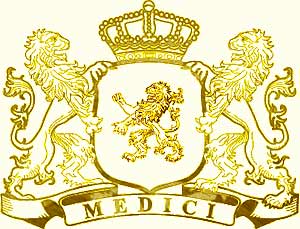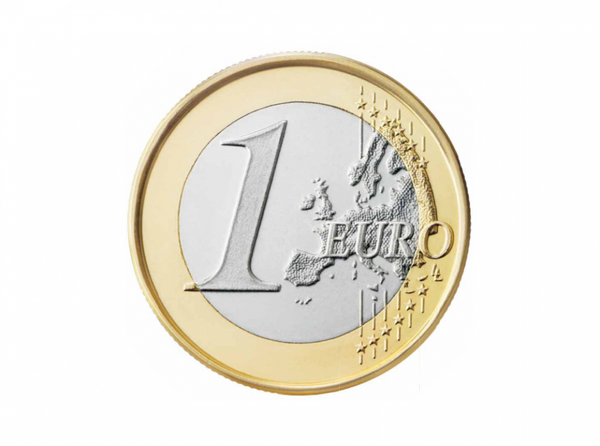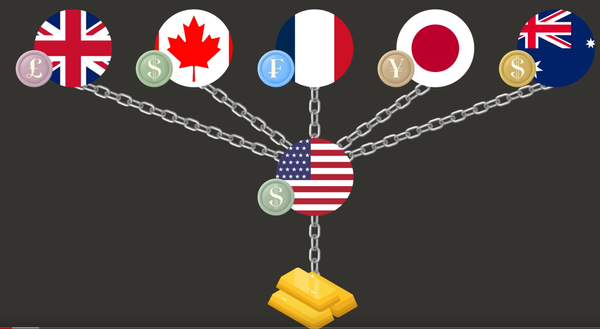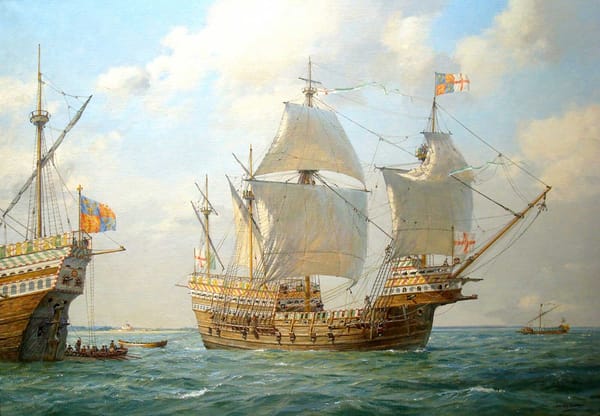You find yourself in Florence, 1397. Giovanni de' Medici has just laid the cornerstone of what will become the Medici Bank, a financial institution that will revolutionize the very fabric of 15th-century Europe and shape the future of banking, governance, and even art for the centuries ahead.
Solving Economic Problems
The Medici Bank's most significant contribution to society was the adoption of double-entry bookkeeping. This system records each transaction in two accounts: debits in one and credits in another.
Mathematically, the equation Assets = Liabilities + Equity encapsulates the principle. By ensuring that the sum of debits equals the sum of credits, double-entry bookkeeping minimizes errors and provides a transparent audit trail.
Here's a simplified example from my AI friend - argue with it if there is a mistake. Suppose you loan out 100 florins; your "Loans Receivable" account (an asset) increases by 100 florins (Debit), and your "Cash" account decreases by 100 florins (Credit). The equation remains balanced:
Assets(100) = Liabilities(0) + Equity(100).
This system provided several advantages:
- Transparency and Accountability: It made it easier to track assets, liabilities, and transactions, thus improving the transparency and accountability of financial operations.
- Error Detection: The double-entry system made it much easier to spot errors or fraudulent activity because if the books didn't balance, it was a red flag that something was amiss.
- Financial Analysis: It was easier to tell the state of a business at a glance.
- Creditworthiness: The system's transparency and accountability made it easier to establish the creditworthiness of business entities, including the Medici Bank itself. This was essential for attracting investment and establishing trust with clients.
Medici Bank also revolutionized trade with a concept called Letters of Credit. These instruments acted as a guarantee, allowing merchants to trade without carrying large sums of money, thus reducing the risk of theft - particularly useful in an era when piracy and banditry were common threats.
By solving these economic problems, the Medici Bank laid the groundwork for modern banking and, by extension, the capitalist system we know today.
Influencing Art and Politics
The Medici family's influence extended far beyond the financial realm, largely thanks to Cosimo de' Medici, Giovanni's son. Cosimo was not just a savvy banker; he was a visionary patron of the arts and a political strategist. Under his leadership, the Medici Bank reached new heights, and Florence became a cultural epicenter of the Renaissance.

Cosimo's patronage was instrumental in the careers of artists like Leonardo da Vinci, Michelangelo, and Botticelli. These artists not only produced iconic works but also contributed to the intellectual and cultural zeitgeist of the time. The Medici used their financial clout to fund public works, support the military, and even influence papal elections, thereby extending their reach far beyond the realm of banking.
Cosimo's power over Florence stemmed from his wealth, which he used to control the votes of officeholders in the municipal councils, most importantly the Signoria of Florence. As Florence was proud of its democracy, he pretended to have little political ambition and did not often hold public office. Enea Silvio Piccolomini, Bishop of Siena and later Pope Pius II, said of him:
Political questions are settled in Cosimo's house. The man he chooses holds office... He is who decides peace and war... He is king in all but name.
https://en.wikipedia.org/wiki/Cosimo_de%27_Medici
Expanding the Bank
The Medici Bank's influence wasn't confined to Florence; it was a European enterprise with branches in key cities, even in Bruges and London. This expansion was made possible by its innovative organizational structure, which was akin to a modern holding company. Each branch operated semi-independently but was governed by a central entity in Florence, which allowed for localized decision-making while maintaining overarching strategic alignment.
This structure was revolutionary for its time and offered several advantages. Firstly, it allowed the Medici Bank to diversify its risk. If one branch faced economic hardships, the others could continue to operate profitably. Secondly, it facilitated the transfer of funds and information between branches, making the bank more agile and responsive to market conditions.
The Medici Bank's expansion strategy was not just about increasing its footprint; it was about creating a resilient, adaptable organization. By decentralizing operations, while maintaining centralized governance, the Medici Bank laid the groundwork for modern multinational corporations.
Sponsoring Monarchs
The Medici's banking activities in London, particularly their financial relationship with Edward IV of England, were a key part of their international banking operations but also illustrated the risks of their business model. The English king needed financial support for his military campaigns during the Wars of the Roses, a series of civil wars for control of the English throne. The Medici bank, seeing an opportunity for profit and influence, provided the loans.
However, lending money to monarchs for warfare was a risky venture. While the king promised lucrative export licenses and high returns if the war was successful and the borrower remained in power, there was always the risk of default or a delay in repayment. This is precisely what happened in the case of Edward IV. Repayments came sporadically and sometimes not at all, depending on the king's military successes and his immediate financial necessities.
These high-risk, high-reward ventures tied the fortunes of the Medici bank closely to political outcomes beyond their control. Although the London branch of the Medici bank was initially profitable, its involvement in English politics and lending to Edward IV was a drain on its resources. Combined with other factors, like poor management, new banking competition, and broader geopolitical events, contributed to the beginning of the financial decline of the Medici Bank.
Navigating Renaissance Regulations
In the 15th century, charging interest on loans was prohibited; it was deemed sinful by the Catholic Church.
The Medici Bank circumvent this regulatory obstacle by disguising interest as fees for services like a currency exchange or by setting artificially wide spread on the exchange rate - ultimately allowing the bank to operate within the religious and legal constraints of the time. It's essential to realize the regulations haven't been written in stone for millennia - they are temporary rules designed to accomplish a goal of society in a bounded time interval.
Learnings for DeFi
During the Age of Enlightenment in the 18th century, Western nations began to move towards the philosophy of a secular state, progressively reducing the formal influence of the Church over State affairs. Looking ahead, one wonders if Decentralized Finance, with its ethos of decentralization, could similarly challenge the traditional role of the state in monetary systems. Could DeFi be to finance what the Enlightenment was to governance, creating a new era of 'financial secularism'?
I will finish with a quote from the most respected economist and statistician who received the 1976 Nobel Memorial Prize in Economic Sciences for his research on consumption analysis, monetary history and theory and the complexity of stabilization policy, Milton Friedman, from his book which I am currently reading, Capitalism and Freedom - Chapter The Control of Money:
The fact is that the Great Depression, like most other periods of severe unemployment, was produced by government mismanagement rather than by any inherent instability of the private economy. A governmentally established agency - the Federal Reserve System - had been assigned responsibility for monetary policy.
What we urgently need for both economic stability and growth is a reduction of government intervention, not an increase.
A liberal is fundamentally fearful of concentrated power. His objective is to preserve the maximum degree of freedom. He is suspicious of assigning to government any functions that can be performed through the market, both because this substitutes coercion for voluntary cooperation in the area in question and because, by giving government an increased role, it threatens freedom in other areas.








